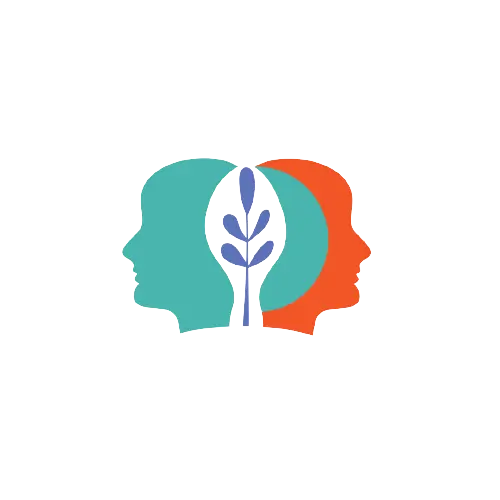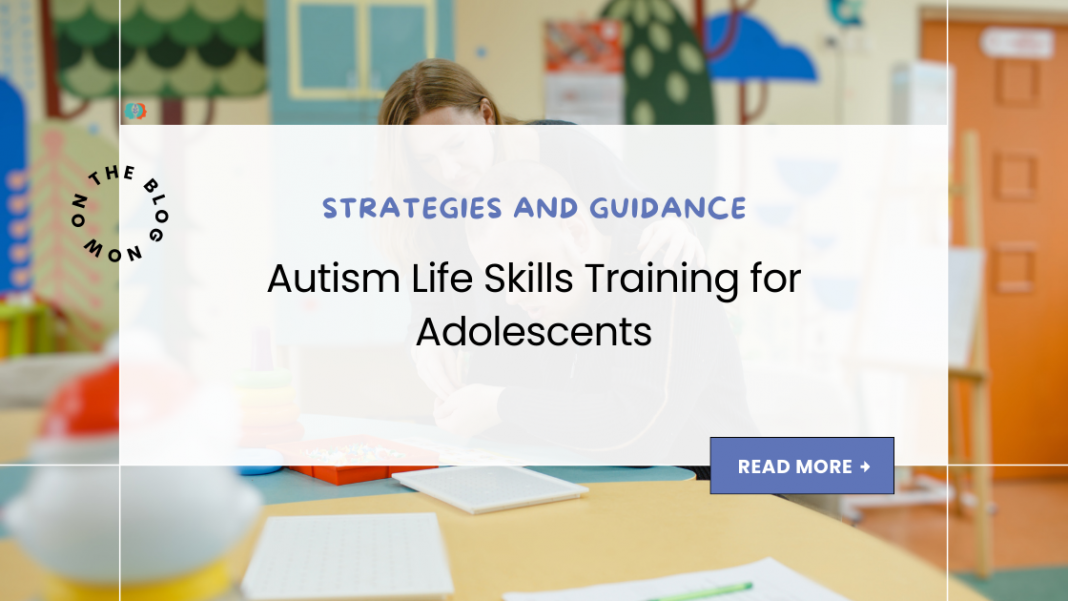The journey into adolescence is a profound transformation for every young person, marked by emerging challenges and boundless opportunities for growth. For adolescents with Autism Spectrum Disorder (ASD), this period is particularly critical. This is why so many parents, and adolescents themselves search for proper autism life skills training methods.
As they learn to negotiate the complex terrains of social interaction, academic pressures, and the threshold of adulthood, their need for a structured approach to life skills training becomes increasingly evident. This guide takes a deep dive into life skills training for adolescents with autism, unveiling the intricacies of nurturing social competence, self-care independence, and vocational prowess, thereby equipping them for a smooth and successful transition into adult life.
The Importance of Life Skills in Autism
Life skills are the building blocks of independence for all individuals, especially for adolescents with ASD. These skills, encompassing everything from interpersonal communication to self-sufficiency in daily tasks, are not just educational milestones but stepping stones to personal freedom and self-esteem.
For adolescents on the autism spectrum, acquiring these skills can be a complex process requiring patience, persistence, and tailored educational strategies. Engaging these young minds in life skills training is not only about teaching them the mechanics of a task but also about instilling confidence and a sense of achievement.
Social Skills: Crafting the Art of Interaction
The art of social interaction is nuanced and multifaceted. For adolescents with autism, the path to mastering social skills is often lined with challenges. However, with effective social skills training, these individuals can learn to navigate this complex world.
Such programs are designed to help these young individuals understand the nuances of verbal and non-verbal communication. Adolescents with autism can learn to interpret body language and facial expressions. Mastering the subtleties of conversation, they develop tools for building relationships and engaging with society.
Embracing Self-Care: Cultivating Personal Independence
Self-care skills go beyond the basic acts of grooming and hygiene; they are a testament to an individual’s autonomy. Teaching self-care is an intricate dance of showing the way and stepping back to allow them to find their rhythm.
With the right support, these young people can learn to manage personal tasks, make health-related decisions, and take responsibility for their well-being. These are critical steps on the path to independence and adulthood.
Vocational Training: Unlocking Potential and Ambition
Vocational skills are not just about securing a job; they’re about unlocking the potential within each adolescent with autism. It should be dynamic, tailored, and responsive to the unique talents and interests of these individuals.
Career-oriented education is a fundamental part of life skills training, providing a sense of purpose and direction. Internships and apprenticeships expose adolescents with autism to job environments, fostering skills and future vision.
Complexity of Transition Planning
Transition planning for adolescents with autism is a multi-layered process that begins early in the educational journey. It’s about more than just preparing for the immediate future; it’s about setting the stage for a lifetime of growth and adaptation.
An Individualized Transition Plan (ITP) is an indispensable tool in this process. By incorporating long-term goals and outlining a pathway for achieving them, ITPs create a blueprint for success that is as unique as the individual it is designed for.
Inclusion in Higher Education: Bridging the Gap to Academia
Inclusion in post-secondary education isn’t merely an accommodation; it’s a recognition of the right to pursue higher learning. Inclusive educational programs provide the scaffolding for adolescents with autism to excel academically while also enhancing their life skills.
These programs should be designed to meet the diverse needs of students with ASD, offering academic, social, and vocational support. From tutoring to mentorship to career counseling, the resources provided can make the difference between merely attending college and truly thriving within the academic environment.
A Holistic Approach to Support
Supporting adolescents with autism in developing life skills requires a holistic approach, one that involves educators, therapists, parents, and the adolescents themselves. Regular assessments, consistent feedback, and adaptive teaching methods form the foundation of a robust life skills training program.
Parental Involvement: A Cornerstone for Success
Parents play an irreplaceable role in reinforcing life skills training at home. Their involvement in setting routines, providing encouragement, and celebrating milestones can profoundly influence the success of the training process.
Community Engagement: Extending Learning Beyond the Classroom
Life skills for adolescents with autism also involve learning to navigate community resources and public spaces. Training in this area ensures that these young people can confidently access services, participate in community activities, and enjoy public amenities.
The Role of Technology in Autism Life Skills Training for Adolescents
Technology aids life skills training with interactive learning tools. Apps teach money management effectively. Programs simulate social scenarios for safe practice. Digital platforms offer controlled skill honing environments for adolescents with autism.
Conclusion: Celebrating Each Milestone
As we cultivate life skills in adolescents with autism, every small step taken is a victory. Each mastered skill is a leap towards independence, and every challenge overcome is a testament to the resilience of the human spirit.
By investing in comprehensive life skills training, we do more than prepare these young individuals for adulthood; we empower them to envision and create a life that is rich in accomplishment and personal satisfaction. Let us commit to nurturing these bright minds, celebrating their unique perspectives, and fostering a world where diversity is not just recognized but revered.




Superb post however I was wanting to know if you could write a litte more on this subject? I’d be very grateful if you could elaborate a little bit further. Kudos!